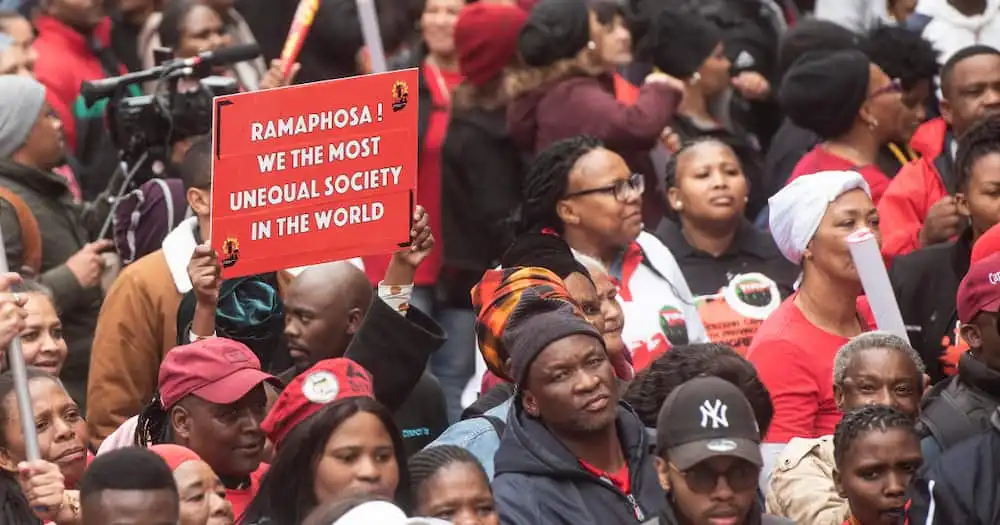
At least 200 working-class groups and pro-worker non-governmental organisations, ANC employees, political parties including the EFF, the PAC, Azapo and the Workers and Socialist Party, have said they will join the national strike led by Congress of South African Trade Unions (Cosatu) on Wednesday.
Marches will start at the Union Buildings in Pretoria, the Prasa building in the Cape Town CBD, the premier’s office in Mangaung as well as Eskom Park in Witbank, Mpumalanga.
Embattled ANC staff, who have not received any salary increases in the past four years while the cost of living continues to rise, have also confirmed they will be joining the national strike according to national staff representative Mvusi Mdala.
The governing party has been unable to pay its employees’ salaries on time for the past year, while the provident fund, unemployment insurance fund and medical aid have been unpaid since 2018.
“The economic meltdown has not spared any staff; we are in a worse position for not getting salary [increases] for four years. Not being paid on time exacerbates the situation we find ourselves in. We have urged all staff members to participate in this national strike in solidarity with all other workers. ANC workers are subject to the same labour laws of the country and therefore the consciousness must talk to them,” Mdala said.
Read also: Brisk Fast Trading truck drivers starve as strike goes over 8 months with no solution in sight
“We have not informed the employer that we will be joining the strike. Speaking to them is not going to make a difference because even when we have our industrial action and the employer starts to treat everything like it is normal.”
What is Wednesday’s national strike all about?
The aim of the strike is to demand urgent action from policymakers and decision-makers to take drastic steps to avoid an economic collapse which Cosatu believes is threatening the lives of millions of workers and the poor.
Cosatu has also red-flagged the recent spike in the cost of living, as South Africans buckle under drastic fuel and electricity price increases.
#COSATU provinces are mobilizing towards a National Strike on Wednesday in ten major cities/towns#CosatuNationalStrike #CosatuNationalStrike#CosatuNationalStrike2022 #CosatuNationalStrike2022@Newzroom405 pic.twitter.com/6nJmjVCB4G
— @COSATU Today (@_cosatu) August 23, 2022
The trade union federation wants the government, the private sector and organised labour to accelerate the implementation of the progressive commitments of the Economic Recovery and Reconstruction Plan.
Saftu’s decision to strike stems from its national executive committee (NEC) meeting last month where it raised concerns about issues including worsening socioeconomic conditions and the marginalisation of poor communities.
‘No work no pay’ on government workers who participate in national shutdown
The government says it will implement a ‘no work no pay’ policy on public servants who participate in the Cosatu and Saftu national strike.
The Department of Public Service and Administration cautioned on Tuesday evening that while protest actions are protected by the Labour Relations Act, employees who fall within the essential services are prohibited from participating in these protests during working hours.
Consequently, the department has provided government departments with guidelines to apply the principle of “No Work, No Pay” to manage those public servants who intend on participating in the strike action and to put necessary contingency plans to deal with service delivery disruptions.
The principle of no work no pay will apply for absence for a full day as well as part of a working day, said the department.
In addition, Leave will be strictly managed, and no Leave will be granted unless under extreme and compelling situations.
Despite numerous requests to participate in the National shutdown, SANTACO will NOT participate in the planned National shutdown.
— SANTACO (@SA_Taxis) August 23, 2022
Notable absentees from the strike are Santaco and truck drivers group, ATDF-ASA, who both said they would not be part of the national strike.





